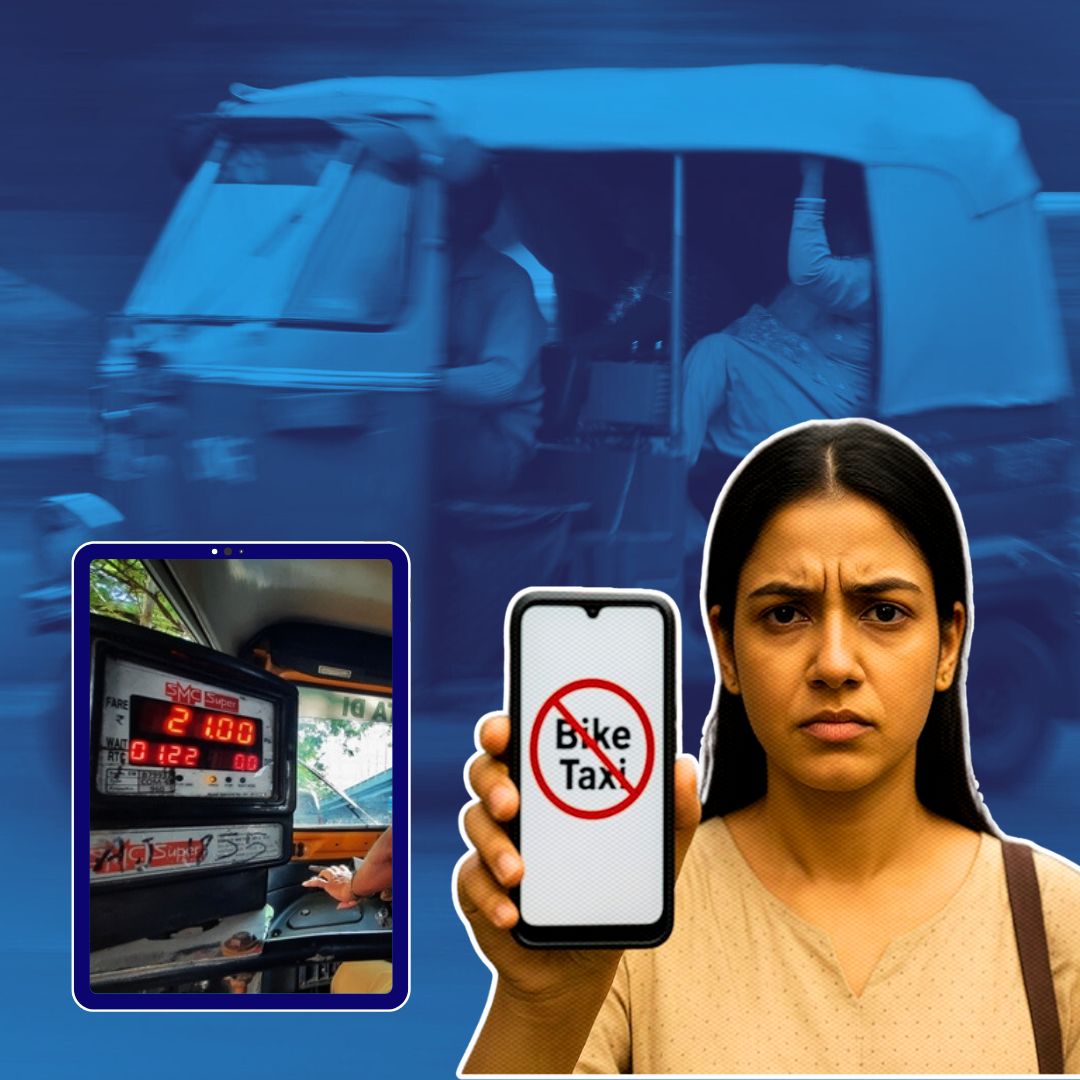Bengaluru has seen a dramatic surge in auto-rickshaw and taxi fares—up to 25%—following the Karnataka High Court’s directive to ban bike taxi services across the state.
The ban, enforced from Monday, has left daily commuters struggling with higher costs, longer wait times, and increased demand for autos. Stakeholders, including aggrieved passengers, ride-hailing drivers, and transport officials, are now calling for urgent solutions amid widespread frustration and mounting pressure on public transport.
Commuters Bear Brunt as Fares Skyrocket
Since the bike taxi ban took effect, commuters have reported sharp fare hikes across all major ride-hailing platforms. Minimum auto fares have risen by Rs 10 to Rs 70, with some routes seeing increases of up to Rs 90 for regular commutes.
A ride from Singasandra to Electronics City (4 km) now costs nearly as much as an 8 km trip, while a typical 11 km taxi ride from Vajarahalli metro to Srinagar has jumped from Rs 350 to over Rs 450. Many passengers also noted that securing an auto has become difficult without offering additional tips, highlighting the strain on both wallets and patience.
Officials Respond as Frustration Mounts
The sudden spike in fares has drawn criticism from both commuters and transport officials. So far, state officials have acknowledged the issue but have not announced concrete relief measures. Meanwhile, social media is flooded with calls to restore bike taxi services, with many users describing the ban as “punishment rather than policy” and urging authorities to find a balanced solution.
The Logical Indian’s Perspective
At The Logical Indian, we believe that urban mobility solutions should prioritise accessibility, affordability, and safety for all citizens. The current crisis in Bengaluru underscores the need for dialogue and cooperation among policymakers, transport providers, and the public to create sustainable alternatives.












